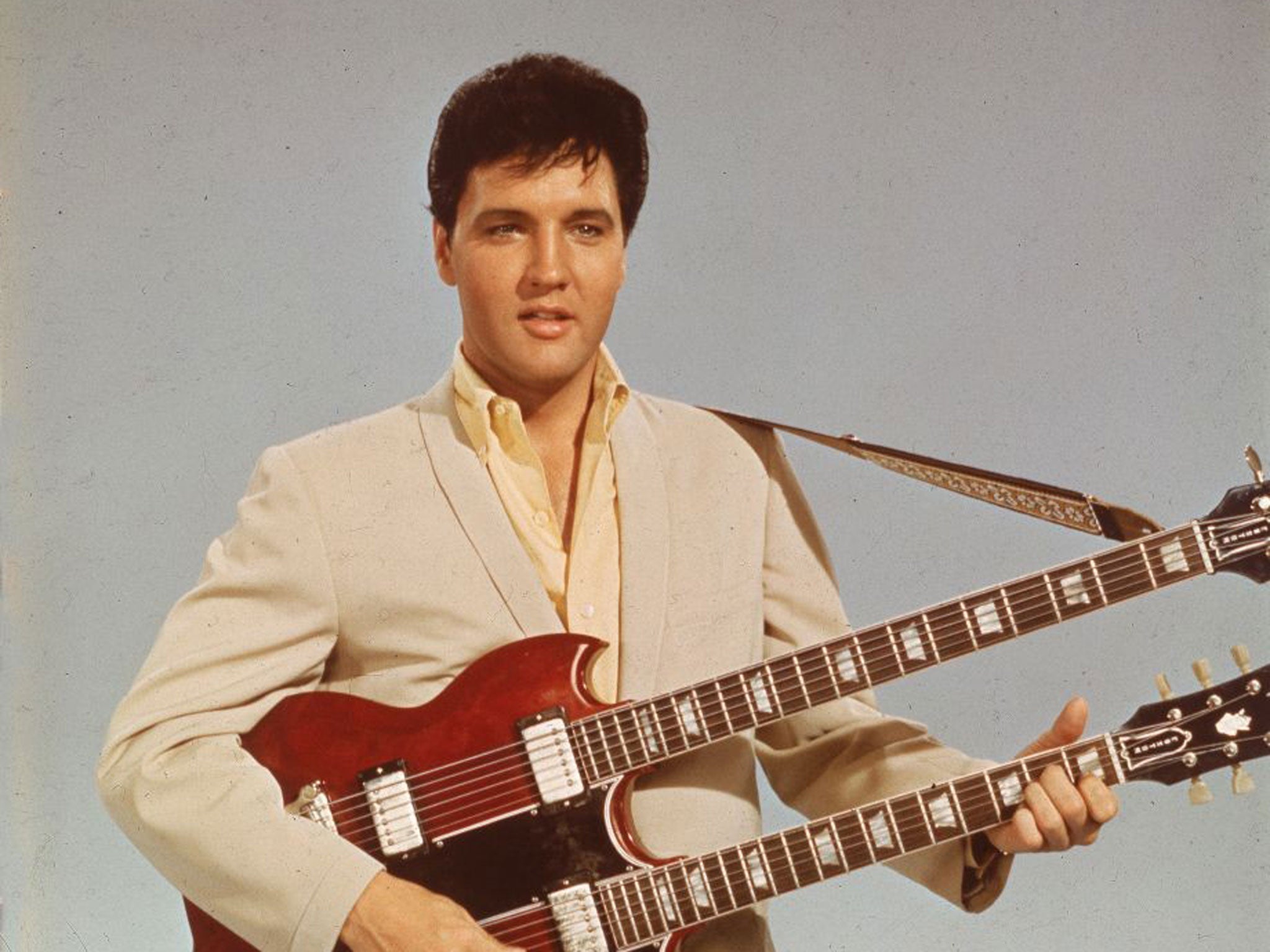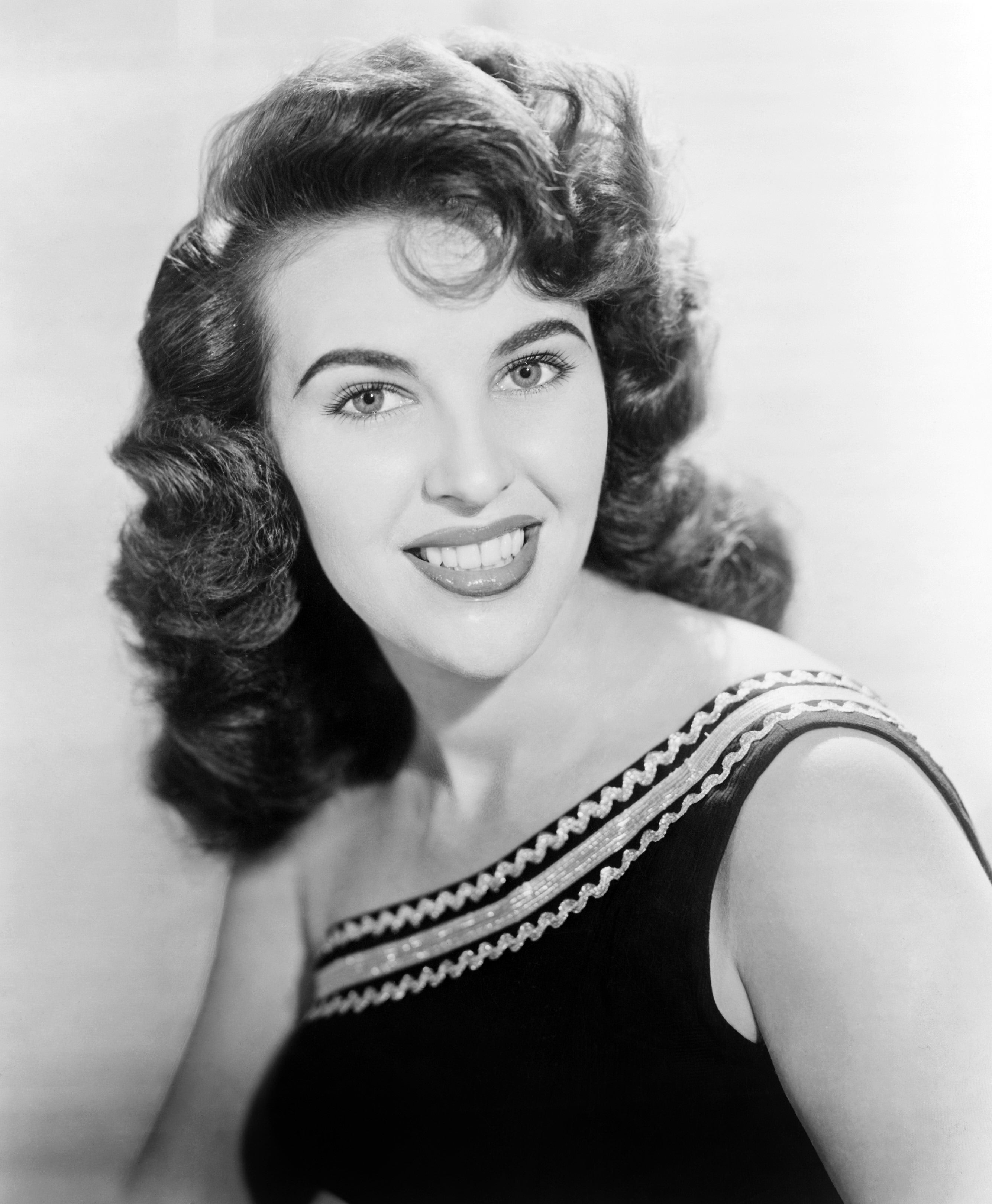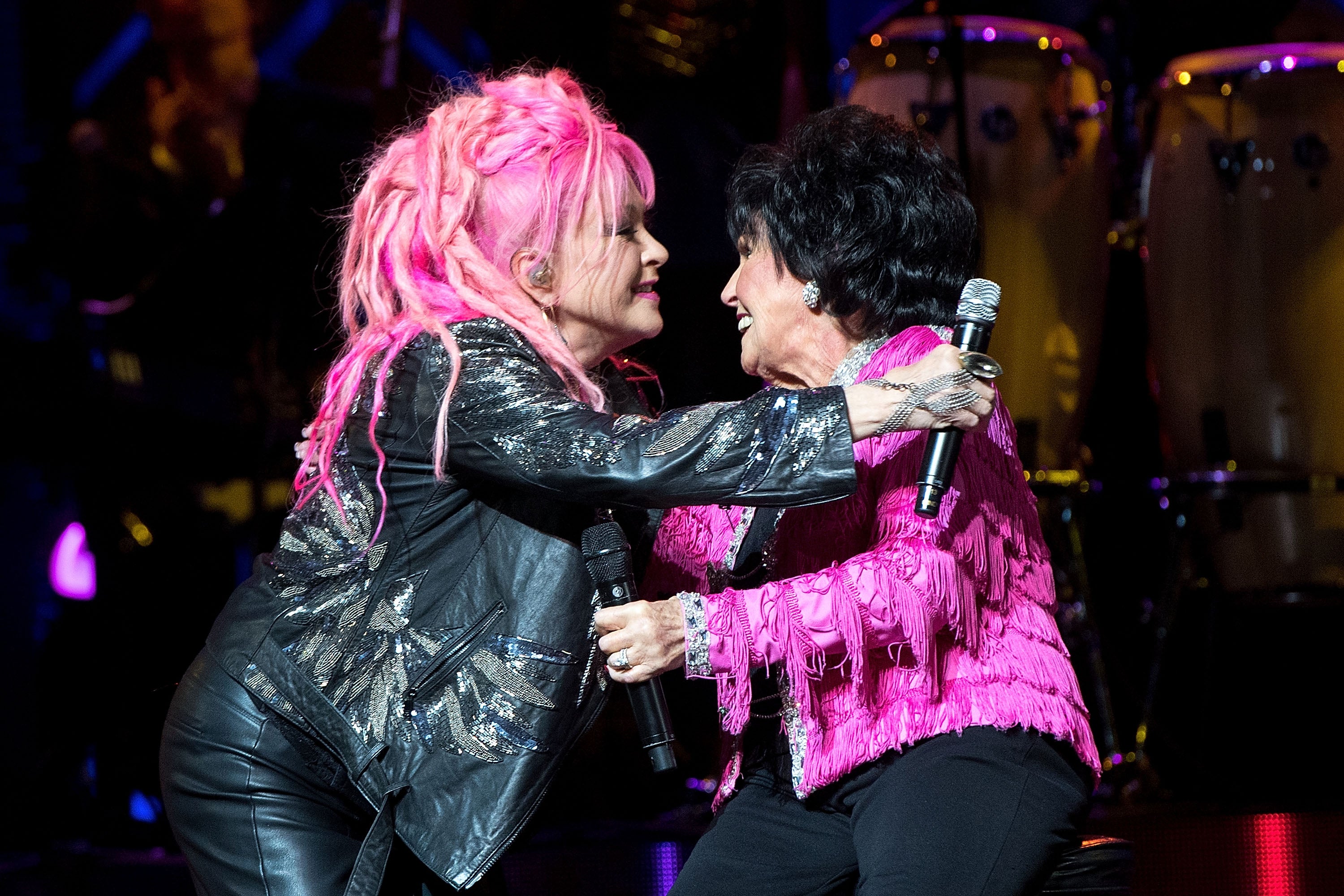‘Elvis saw a feistiness in me’: How rockabilly queen Wanda Jackson became one of the boldest artists around
Back in the Fifties, Jackson was told by a music label that girls don’t sell records. Over her six-decade career, she’s proved them wrong. She talks to Jim Farber about her final album, dating Elvis, and that famous feral growl

Your support helps us to tell the story
From reproductive rights to climate change to Big Tech, The Independent is on the ground when the story is developing. Whether it's investigating the financials of Elon Musk's pro-Trump PAC or producing our latest documentary, 'The A Word', which shines a light on the American women fighting for reproductive rights, we know how important it is to parse out the facts from the messaging.
At such a critical moment in US history, we need reporters on the ground. Your donation allows us to keep sending journalists to speak to both sides of the story.
The Independent is trusted by Americans across the entire political spectrum. And unlike many other quality news outlets, we choose not to lock Americans out of our reporting and analysis with paywalls. We believe quality journalism should be available to everyone, paid for by those who can afford it.
Your support makes all the difference.In the world of music, few artists beyond their mid-thirties have a chance on the pop charts. It’s particularly remarkable, then, that pioneering rockabilly queen Wanda Jackson ended up entering one of the busiest periods of her career, and achieving her highest media profile, in her sixth decade of life. In the 1990s, a rockabilly revivalist movement made her more popular on the touring circuit in the UK, Europe, and America than she had been in decades, all while her recording output continued apace.
“I was just getting my second wind at the time,” she says by phone from her long-time home in Oklahoma City. “I was rarin’ to go.”
In fact, she had enough energy and support to keep touring and recording for nearly 30 more years. In 2011, at age 73, she became the oldest female artist to land an album on the Billboard Top 200 chart with The Party Ain’t Over, produced by Jack White. Only when Jackson turned 81, two years ago, did she announce her retirement. Even after making that declaration – and after suffering a massive stroke – she has one more statement to make.
This week, the groundbreaking singer and guitarist will release what she promises will be her final album, the aptly titled Encore, a work produced by another forward-thinking female artist, Joan Jett. “I could really relate to Wanda’s whole story,” Jett says. “She was a woman in music doing her own thing a good 20 years before I was, and I know the crap that I took. I can only imagine the crap she had to take.”
It was Jackson’s manager who approached Jett several years ago about producing a final album for the star, a proposition the younger artist jumped at. “Wanda is a historic figure,” says Jett. “Anything I could do to turn people on to her history and her talent I wanted to do.”
The resulting album, Jackson’s 46th, finds her sassy persona, snarling vocals and staunchly rocking beats in full force, echoing those elements that made her stand so far out in the late 1950s. Encouraged by no less a star than Elvis Presley, a teenage Jackson made the leap from her original base in country music to become one of the first female rockabilly artists. In many ways, she also made a case for herself as the boldest. “She was doing things most other women were not allowed to do at the time,” says Holly George-Warren, whose book Shake Rattle and Roll: The Pioneers of Rock’n’Roll chronicles important artists of that early era, including Jackson. “She had this independence in her attitude that showed in so many ways in her music.”
That included how she sang, how she dressed, how she comported herself and even the mere fact that she wrote some of her own songs. “Very few women were allowed to do that at the time,” George-Warren said.
At the same time, certain aspects of Jackson’s character helped her pull that off. While her music may have been assertive, her demeanour remained genteel. Her slogan underscored that balance: “She’s the sweet lady with the nasty voice.” “When I’m singing a song, I sing the way the words dictate,” Jackson says. “So, I can sound pretty hard when I’m not really.”
Today, Jackson exudes a grandmotherly warmth, repeatedly calling me “dear”, and speaking in the sweet tones of a traditional Southern woman. “I don’t think any men ever felt threatened by me,” she says. “They were wonderful to me.”
Enjoy unlimited access to 100 million ad-free songs and podcasts with Amazon Music
Sign up now for a 4 month free trial (3 months for non-Prime members)
Enjoy unlimited access to 100 million ad-free songs and podcasts with Amazon Music
Sign up now for a 4 month free trial (3 months for non-Prime members)

In fact, they proved crucial to every step of her career. Her father served as her first mentor. “He was the one to put a guitar in my hand and begin to teach me chords,” she recalls. “He played fiddle and sang and he had a dance band for a while, but it was the depression days, so he didn’t ever get to really spread his wings. He put that into me by travelling with me and by becoming my confidant and manager.”
Jackson’s dad oversaw her career until she got married in 1961 to Wendell Goodman, who then left his job at IBM to promote her musical pursuits full time. Her exposure on local radio shows in 1951, when she was just 15, drew the attention of the important country singer Hank Thompson. “He called after my show and invited me to be a guest with his band,” she says. “I just about peed my pants!”
More, he brought her to his record company, Capitol, to consider for a contract. “They told him, ‘She’s pretty good but girls don’t sell records so we’re not interested,’” Jackson recalls.
Luckily for her, Decca Records was interested and one early song she cut for them, “You Can’t Have My Love”, shot to No 8 on Billboard’s Country and Western chart. The success earned her an invitation to perform at the Grand Ole Opry, the famous weekly Tennessee concert and radio broadcast – but the host for that evening, Earnest Tubb, balked at her wardrobe, which had been designed by her mother and featured skimpy spaghetti straps and lots of shaking fringe. An appalled Tubb made her put a thick cowboy jacket over her get-up. “My outfits were seen as scandalous at the time,” Jackson says, with a laugh. “I didn’t see it that way.”
Soon, however, she found a genre that suited her free-spirited clothes and attitude, aided by a fast-rising star. In 1955, she met a young Elvis, who had huge followings in certain parts of America but had yet to achieve mass fame. “I had never heard of him when we met,” she says. “But we had a lot in common. We were two happy-go-lucky kids.”
They toured together for a while and dated. “He gave me a ring to wear around my neck,” Jackson says. “I didn’t ask him about other girlfriends. I figured what I don’t know won’t hurt me.”

Though at the time she was then singing “straight old country music”, she says that “Elvis saw a feistiness in me”. “He told me, ‘You should try rock’n’roll. It’s simple!’ My dad and I talked it over and he said, ‘This is going to be the next big music. Kids are the ones buying the records and calling the radio stations and you need songs that appeal to them.’ I could see how crazy these kids were going over Elvis so it made sense.”
Though she continued to cut country songs, Jackson also began to release rock’n’roll records, honing a whole new sound and presentation. For those songs, she developed a feral growl that became a signature. At first, her producer wanted her to tone it down. Then her father stepped in. “He pulled me aside and said, ‘Look, you sing the way you want to. Just rear back and sing that thing!’”
The result created such highly aggressive recordings as “Hard Headed Woman” and “Fujiyama Mama”. The latter became a No 1 hit in Japan, despite lyrics that likened the singer’s explosive desires to the bombings in Hiroshima and Nagasaki. “The song became a classic in Japan,” Jackson says. “Every generation there knows that song.”
Her success on the US charts, however, remained sporadic, and she remained far less known than the men of rockabilly with whom she toured, such as Jerry Lee Lewis and Carl Perkins. By the time the British invasion came in the mid-Sixties, Jackson returned to country music, where she enjoyed modest success. As for her connection to Elvis, they lost touch after he became a mega-star, though she insists “he always remembered me”.
In 1971, a big change in Jackson’s life came when she and her husband became born-again Christians, inspiring her to make a long string of gospel records. Rock’n’roll came calling again in the late 1980s and early Nineties when rockabilly revivalists in the UK and Europe dug out her records and asked her to come and tour. “I thought I would feel silly in my fifties and sixties singing songs about a teenager,” Jackson says. “But the audience was so enthusiastic about hearing the songs the way they sounded on the record that I didn’t have a problem with that for very long.”

The past decade or so has brought Jackson an even higher level of recognition, including her induction into the Rock’n’Roll Hall of Fame as an “early influence”, and the release of three albums, each produced by other prominent musicians, from Jack White to Justin Earle Townes (who oversaw her 2012 album Unfinished Business) and now Joan Jett.
For the new album, Jackson wrote more songs than she has in decades, and she also put more of her personal story into them than ever before. She chalks that up to “age and circumstances. My husband passed away in 2017 and that left me devastated. The stories I was telling on this album are about our marriage and what we went through.”
In “We Got to Stop”m she wrote about the problems they dealt with early in their marriage, while the finale, “That’s What Love Is”, summarises what she learned from their 56-year union. Other songs on the set, like “Treat Me Like a Lady” and “You Can’t Get a Good Girl Down”, deal with her experience as a woman in the music industry.
Jackson made the decision to retire because of increasing problems with her foot and knee, which, together, made it too taxing to go on the road. But, amazingly, she came through her stroke unscathed, because her daughter got her to the hospital fast enough to get a shot that broke up the blood clot. “I was so fortunate,” the singer says. “Jerry Lee Lewis had the same kind of massive stroke and he didn’t come out as well.”
While Jackson says she misses the road – and though, in her long career, she has never achieved the superstardom fans believe she deserved – she feels satisfied with her professional life. “I’ve made a living and provided a living for lots of other people,” she says. “And I’ve had the best of both worlds. I wasn’t so well known that I didn’t have my privacy but I was well-known enough to fill up auditoriums. If you can look back and say that, I’d say it’s a pretty good life.”
‘Encore’ is released on Big Machine Records on 20 August



Join our commenting forum
Join thought-provoking conversations, follow other Independent readers and see their replies
Comments